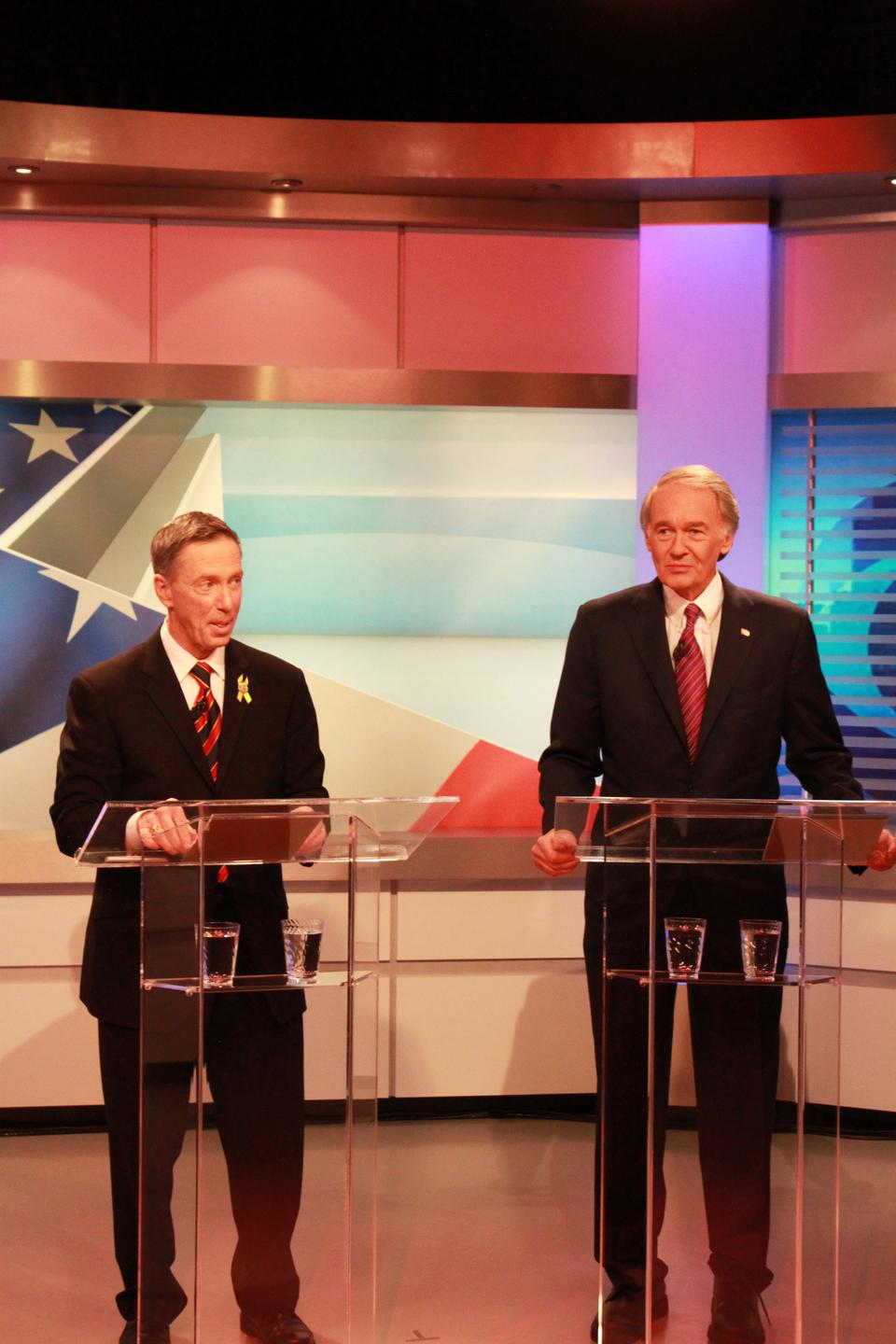
News
Harvard Grad Union Agrees To Bargain Without Ground Rules

News
Harvard Chabad Petitions to Change City Zoning Laws

News
Kestenbaum Files Opposition to Harvard’s Request for Documents

News
Harvard Agrees to a 1-Year $6 Million PILOT Agreement With the City of Cambridge

News
HUA Election Will Feature No Referenda or Survey Questions
Democratic Senate Candidates Debate Security

In the wake of the Boston Marathon bombings, and with primary day a week away, the two men battling for the Democratic nod to seek the state’s open Senate seat tangled over their voting records on homeland security in a debate Monday night at the WBZ-TV studios in Allston.
Stephen F. Lynch, the South Boston congressman who polls show drawing closer to the once heavily favored U.S. Congressman Edward J. Markey, came out swinging. He opened by attacking Markey for voting against a handful of homeland security measures that Lynch himself supported, including a 2002 federal law that created the national Joint Terrorism Task Force. The national task force supports locally based collections of law enforcement agencies drawn from different levels of government. Currently, a regional Joint Terrorism Task Force that includes the Boston Police Department and the FBI is investigating the marathon bombings.
“I think one of the great parts of what happened [after the marathon bombings]...was the coordination between different agencies—the Joint Terrorism Task Force,” Lynch said, suggesting that Markey’s 2002 “nay” vote was a vote to inhibit that coordination.
Markey defended himself, saying he voted against the bill because he thought it would not have been sufficiently effective.
“If I did vote no [on the creation of the Joint Terrorism Task Force], the reason I voted no is that they were excluding a provision that would have made the bill even stronger,” Markey said.
In another effort to paint himself as a strong supporter of homeland security, Markey pointed to his efforts to promote security around nuclear and natural gas plants.
But Lynch said that Markey’s record did not back that up. While Markey has introduced or supported a number of initiatives to increase homeland security funding since the creation of the Department of Homeland Security in 2002, he has also voted against appropriating additional funds for port security and the Transportation Security Administration.
The candidates also discussed the controversial questioning of Dzhokhar A. Tsarnaev, the living suspect believed to be responsible for the marathon bombings. Citing a public safety exception previously used in terrorism cases, federal agents interrogated Tsarnaev before reading him his Miranda rights, which gives suspects an explicit right to counsel and to remain silent.
Markey took no issue with the decision, deferring to President Barack Obama’s judgment. Lynch, however, said he was worried that the decision not to administer Miranda rights for some time might complicate the prosecution.
The candidates broached other issues throughout the evening, including health care and technology. Markey criticized Lynch for opposing the Obama’s landmark 2010 Affordable Care Act, while Lynch criticized Markey for co-authoring the 1996 Telecommunications Act, saying it did not do enough to make the industry competitive. Still, the story of the night was the clash over homeland security.
“Well, I think it was poor judgement, let’s put it that way,” Lynch told reporters after the debate, speaking of Markey’s ‘nay’ vote regarding the national Joint Terrorism Task Force. “If you go down the line of votes that we’ve had on that issue, it’s glaring, the difference between the two of us.”
Markey, also speaking after the debate, said he appreciated the work of the Joint Terrorism Task Force. When asked if he regretted voting against its creation, he said he needed to return to his notes.
“I don’t know what the Bush administration was doing that would have weakened it [at the time], so I’m going to have to take a look at that, but I’ll get back to you in the very near future,” he said.
Voters head to the polls for both parties’ primaries on April 30, to be followed by a special election on June 25. The newest poll, conducted by the Western New England University Polling Institute, shows Markey leading by 10 points, with 21 percent of respondents yet to decide.
—Staff writer Matthew Q. Clarida can be reached at clarida@college.harvard.edu. Follow him on Twitter @MattClarida.
Want to keep up with breaking news? Subscribe to our email newsletter.
